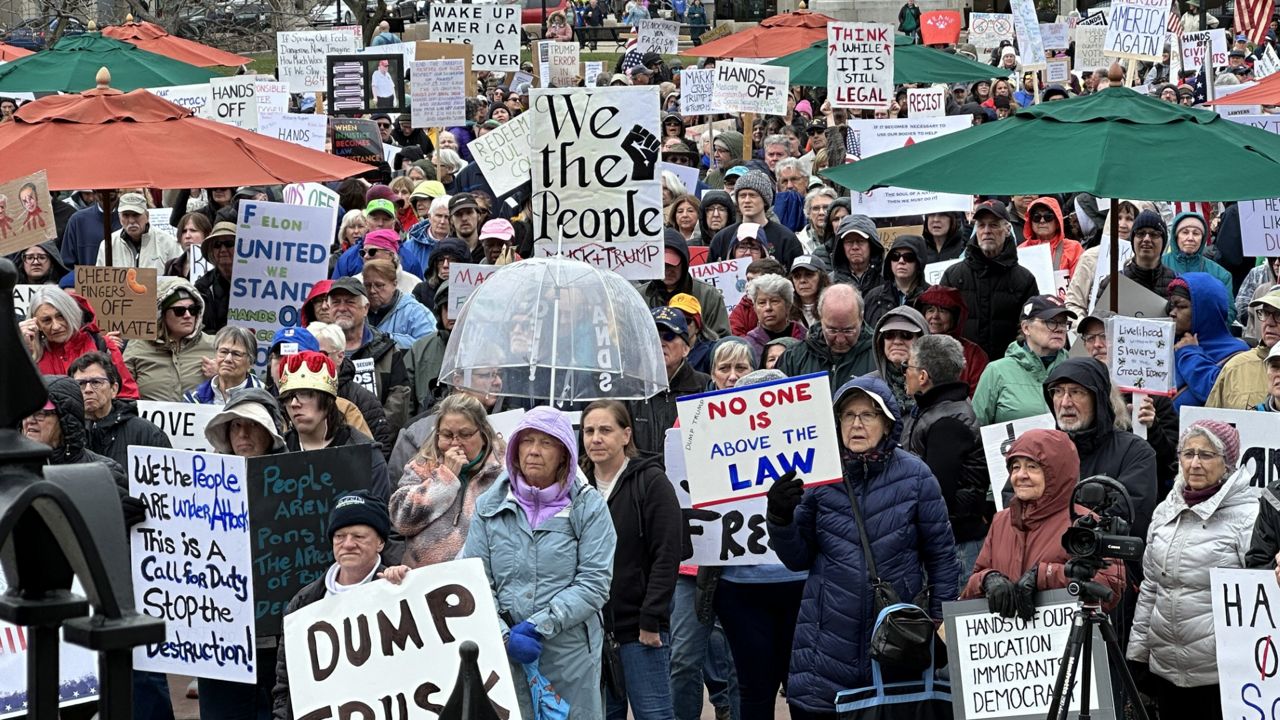PITTSFIELD, Mass. - Monday’s Berkshire regional planning session at the Berkshire Innovation Center marked the seventh of nine stops the Office of Economic Development is making across all corners of the state.
“All of the regional sessions have been great," Secretary of Economic Development Yvonne Hao said. "And all of our regions have so many opportunities that are unique to their regions.”
What You Need To Know
- The Massachusetts Executive Office of Economic Development is hosting regional planning sessions throughout the Commonwealth
- The goal of the regional planning sessions is to gather public input from residents, businesses and organizations as the office develops the statewide economic plan
- State law requires a new economic development plan to be created and signed by the governor within the first year of a new administration
Hao, who graduated from Williams College, said it’s great meeting people directly in breakout meetings to discuss issues, opportunities and solutions for the state’s economic development plan.
“I love being out in the Berkshires," Hao said. "And to me the Berkshires have so much to offer and there's so much momentum here. It's really about how do we gather all these ideas today from the folks through the community and amplify that together in a public private partnership.”
Mark Melnik, director of economic & policy research at the UMass Donahue Institute, has been speaking at the public sessions to highlight some of the state’s economic trends and issues, especially in post-pandemic recovery.
“I focus a lot on quality of life issues for low and moderate income households and how to make ends meet in a high cost state," Melnik said. "One of the biggest things that are facing the state right now on broader competitiveness is just growing our labor force. Massachusetts is an older than average state, and as you project forward out to the 2040, 2050, as baby boomers reach into retirement ages, the size of the labor force in the state will not grow to the same extent it had before.”
“Historically, we've done really well," Hao said. "And you can see that some of Mark's numbers, we have pretty low unemployment. We are kind of leaders in a bunch of sectors and we are world leaders, for example, in places like hospitals and education and life sciences, financial services. We employ a lot of people in those areas, and so there are opportunities for us to lengthen that lead.”
Hao said her concerns are in the trends of people who left Massachusetts during the pandemic and those numbers not being offset by people coming into the state, saying affordability is a key to future development.
“We have work to do to make sure that we are competitive, and we continue to be affordable and that we emphasize equity," Hao said. "Those are the big themes in the Healy-Driscoll administration. How do we do all those things to make sure this is the best place for talented people across all kinds of backgrounds to want to, you know, begin their lives, start their families, have great careers? How do we make this the best place for companies to start, stay, expand and to really succeed and thrive? And so that's, some of those numbers and those trends are things that we have to address.”
The plan is to address those issues. The final version of the economic development plan for the next four years will be published and signed by Gov. Maura Healey in December.










